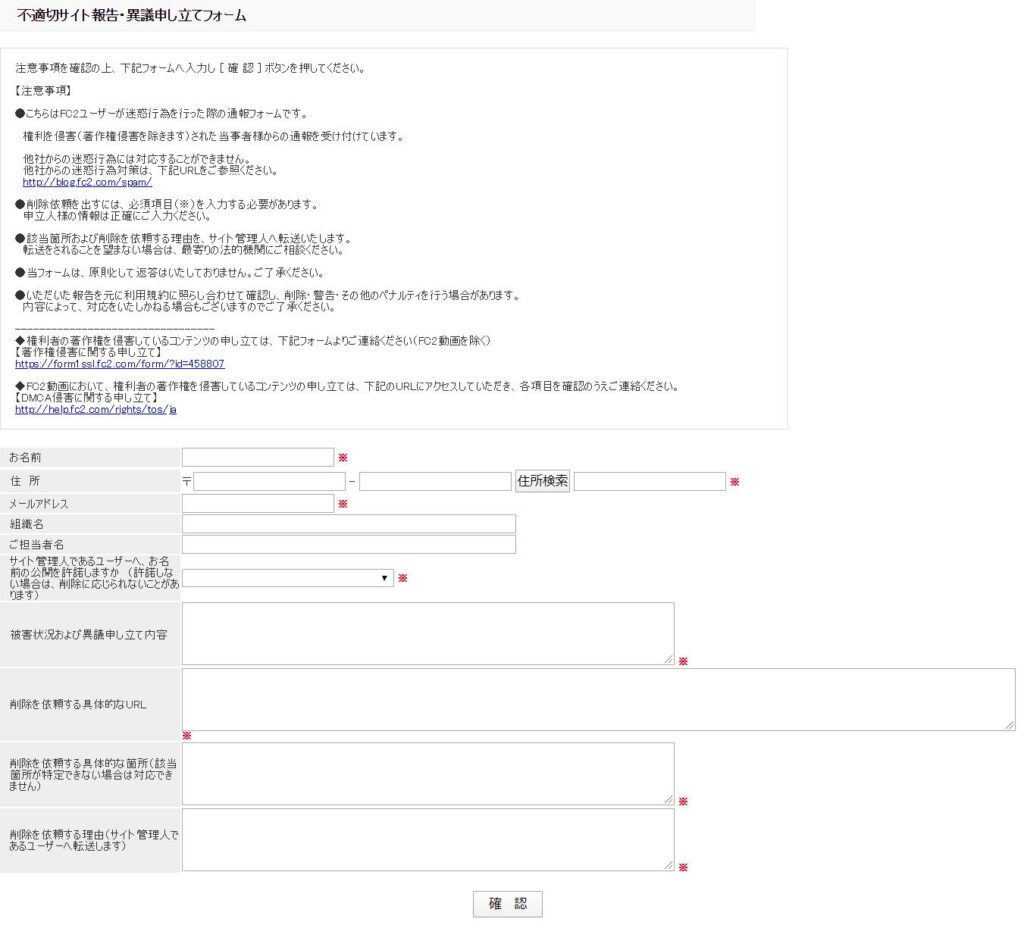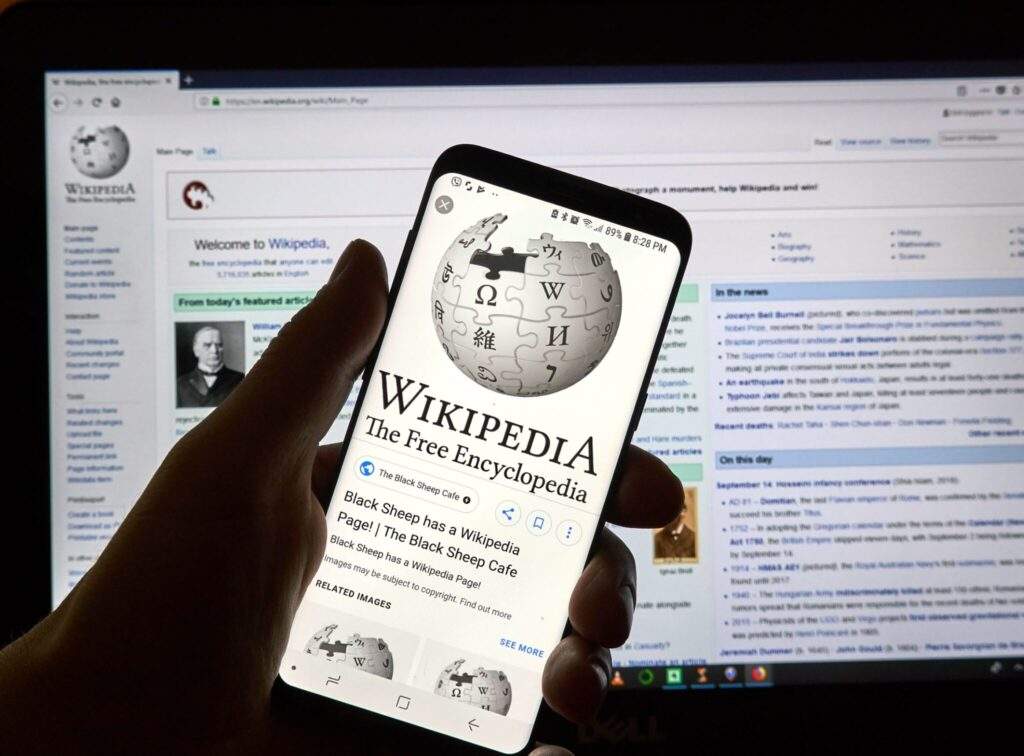What are the Reputational Damage Control Measures for Defamation on FC2 Blogs?

Many people use FC2 as a platform for creating blogs. FC2 is a long-established platform that is known for its reliability and comprehensive features, making it user-friendly. However, this is not limited to FC2, but when publishing articles to an unspecified number of people on the internet, there is inevitably a risk of reputational damage due to defamation. In this article, we will explain the content and countermeasures of reputational damage on FC2.
What is FC2 Blog?
FC2 Blog is a free blogging service that boasts one of the highest levels of recognition and user numbers in Japan. The total monthly visitor count for the entire blog exceeds 200 million. It is also strong in SEO, making it suitable for those who want to earn through affiliate marketing. In addition, it has high customizability, making it recommended for those who want to fine-tune details such as design to their liking. Furthermore, although not widely known, the operator of FC2 Blog is an American company (headquartered in Las Vegas), so it also supports services in English. FC2 Blog is reputed to be easy to use even for beginners, but due to its large number of users, it is also prone to reputational damage on the blog. In the next chapter, let’s look at what kind of content there is for reputational damage on FC2 Blog.
What Kind of Reputational Damage Can Occur on FC2 Blogs?

Since it’s a blog, virtually any content can be posted. Conversely, this means that the scope for potential reputational damage is wide. In this section, we will introduce some of the most common types of reputational damage. Please note that the examples given here are not limited to FC2 blogs, but are types of reputational damage that can occur on blogs in general.
Reputational Damage to Companies
Unfounded slander against a company posted on a blog can potentially cause reputational damage, leading to a drop in sales or a decrease in the number of students wishing to join the company. For example, consider a post that reads, “I used to work for a company called XX, and it’s a hotbed of unpaid overtime and power harassment is a daily occurrence.” Job-seeking students who see this blog on the internet may think, “It seems credible because it looks like an employee’s actual experience. I’ll pass on interviewing with this company.” Also, if a product or service is criticized as “I tried this product, but it wasn’t good at all,” it could contribute to a decrease in sales or users. Thus, a blog post can potentially cause reputational damage to a specific company.
Reputational Damage to Regions
There is also a risk of reputational damage to specific regions, such as Tokyo or Saitama. Concrete examples of damage include a decrease in tourists to the region or a decrease in buyers of agricultural products harvested in the region. For example, suppose a blog spreads news that “A case of the new influenza has been confirmed in Chiba.” Readers of this article might think, “I could be at risk of infection,” and be cautious about going to Chiba. Also, due to the nuclear accident caused by the Great East Japan Earthquake in 2011 (Heisei 23), vegetables harvested in Fukushima Prefecture are still often avoided. If a blog post says, “Vegetables from Fukushima are full of radiation,” people may still avoid vegetables from Fukushima, even nearly 10 years after the accident.
Reputational Damage to Individuals
Posts that infringe on an individual’s honor or privacy can also be made. Famous people and politicians are particularly likely to be targeted. For example, posts like “I saw idol XX, who is married, walking with a young woman who is not his wife the other day” or “Politician XX is corrupt” can be damaging. Even if these rumors are baseless, they can potentially harm the person’s popularity and affect their work. Also, even for ordinary people, if they are subjected to slander that can identify them, it may constitute an infringement of their rights to honor and privacy.
How to Remove FC2 Blog Articles that Cause Reputational Damage Due to Violation of Terms

As we have seen in the previous chapter, FC2 Blog is prone to reputational damage. So, what should you do if you find a blog article that you think is defamatory? The first thing to consider is whether it can be removed due to a violation of the site’s terms. In this chapter, let’s look at the terms of FC2 Blog and how to request removal from the site.
First, can the operator remove an individual’s blog article? The answer is yes, it is possible. FC2’s terms of use “6. Disclaimer” states, “If a user’s actions are judged to infringe on the rights of FC2, other users, or third parties, the user ID and user content may be frozen and deleted without warning.” If the operator deems it problematic, the blog itself can be deleted without the person’s consent. However, please note that the operator does not have the obligation to monitor content or delete it. The terms of use clearly state, “The user is responsible for all information transmitted, and FC2 is not responsible for any damage caused by not deleting content.” In other words, FC2 does not delete content on its own, and if there is an article you want to delete, you need to approach FC2. The terms of use “6. Disclaimer” also state, “The user is responsible for deleting and managing the content they create.” To summarize, “We will respond to deletion requests, but we will not actively delete content, so if you want something deleted, please request it.”
Criteria for Deletion Due to Violation of Terms
To succeed in a deletion request, you need to show that it violates the terms. The terms related to defamation are described in “4. Prohibited Acts” as follows:
02 Acts that infringe on the credit or reputation of other users or third parties, or infringe on the privacy rights, portrait rights, or any other rights of others
(Partially quoted: FC2 Terms of Use “4. About Prohibited Acts”)
06 Acts and expressions that violate social morals and public order. Public release of obscene images, sounds, strings of personalitys, etc., and aiding and abetting such acts against other users or third parties
08 Acts that discriminate against individuals, specific groups, governing bodies, nations, products, political systems, beliefs, ideologies, ethnic groups, religions, races, genders, etc., and defame their honor or credit, and acts that promote such behavior
09 Acts of deceiving individuals, companies, organizations without any facts, or falsely claiming to have a business alliance or cooperative relationship with other persons, companies, organizations, and corresponding acts
For example, if there is a statement like “XX is human trash. He/she has no value in living,” it is likely to conflict with 02 or 08 of the above four. Also, if it’s groundless defamation, 09 can be used.
How to Delete Due to Violation of Terms

On the FC2 site, there is an inquiry form called “Inappropriate Site Report/Objection Form,” which you can use. Please note that you need to enter personal information such as your name and address in the inquiry form. In the “Reason for Requesting Deletion” field, write down which terms the relevant blog article violates. Normally, deletion is completed in about 1-2 weeks, but if it is not deleted even after that time, there is a possibility that the deletion has failed. In that case, you will need to request deletion from the court on the grounds that it violates the law.
How to Remove FC2 Blog Posts for Legal Violations
In cases where online defamation is claimed as a legal violation, there are often disputes over whether the case qualifies as defamation. Defamation is the act of making statements that lower a person’s social credibility in front of an unspecified number of people. In defamation, it is necessary to meet three requirements: ‘publicly’, ‘indicating the facts’, and ‘damaging the honor of a person or group’. For example, let’s say someone wrote on their blog, “I got food poisoning after eating the retort curry from a company called ☆☆”. In this case, you would argue that:
- The claim that “the retort curry caused food poisoning” is specific,
- Being perceived as a company that sells products that cause food poisoning is significantly disadvantageous for ☆☆,
- The retort curry did not cause the food poisoning.
However, even if the above requirements are met, if ‘public interest’ or ‘public nature’ is recognized, that is, if it is recognized that disclosing the fact is in the public interest, defamation does not occur. So please keep this in mind. In any case, if you claim defamation in court, you will need to engage in legal discussions. Legal discussions such as “What rights are being violated?” and “Which actions can be said to violate rights?” are honestly difficult for laypeople. Therefore, we recommend consulting a lawyer.
https://monolith.law/reputation/cases-not-recognized-as-defamation[ja]
How to Remove FC2 Blogs via Provisional Disposition

While court proceedings are conducted with careful deliberation, the downside is that they can be time-consuming. If the article you want to remove remains public, the reputational damage will only continue to spread. Therefore, it’s only natural that you would want to remove the article as soon as possible. For this reason, when dealing with defamation on the internet, it is often better to opt for a provisional disposition, which can be processed more quickly than a lawsuit. A provisional disposition is a measure taken to realize the requested state before substantial deliberation in court. Even though it’s a provisional measure, the article will be removed, which should provide some relief. However, just like a lawsuit, a provisional disposition requires legal argumentation. Therefore, it is wise to seek the help of a lawyer.
https://monolith.law/reputation/provisional-disposition[ja]
How to Identify Posters on FC2 through Provisional Dispositions
In provisional dispositions, not only can you request deletion, but you can also identify the author of a blog post. If you can identify the poster, you can directly tell them to “stop!”, which can help prevent recurrence. However, the process of identifying the poster can be complicated. First, you request the disclosure of the poster’s IP address on the FC2 site, but at this stage, you cannot obtain any personal information other than the IP address. This is because the site does not hold any information other than the poster’s IP address. To obtain information such as address and name, you need to separately request information disclosure from the provider. Of course, the provider also has a request for personal information protection, so it is conceivable that they may not easily comply with the request. Therefore, be prepared for a long-term battle when trying to identify the poster.
https://monolith.law/reputation/identifying-contributors-after-deletion[ja]
Summary
FC2 Blog is a free blog platform that boasts one of the highest user numbers in Japan. Due to its large user base, there is a risk of various reputational damages occurring. It is advisable to first make a deletion request on your own due to violations of the site’s terms of use, and if that doesn’t work, to argue for a provisional disposition in court. As legal discussions are essential, we recommend seeking the help of a lawyer who is experienced in dealing with online defamation.
Category: Internet





















